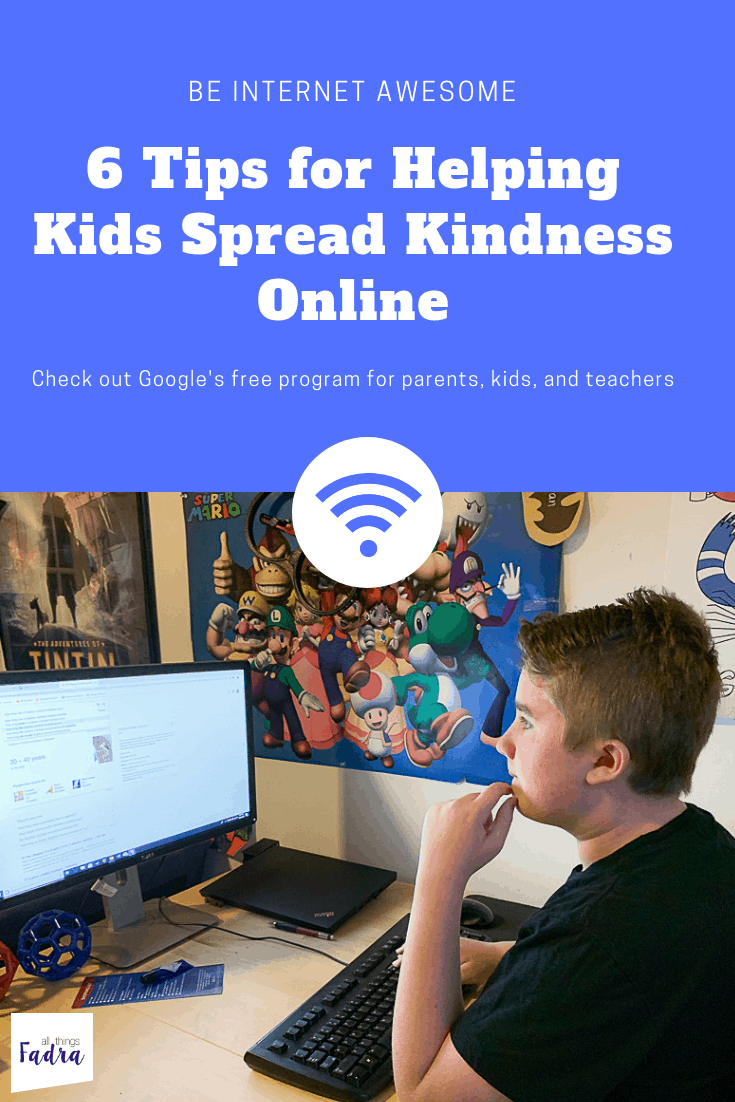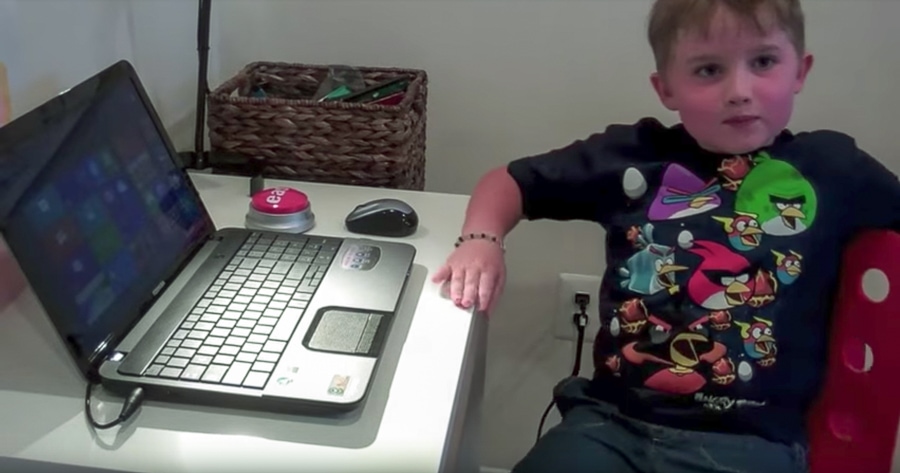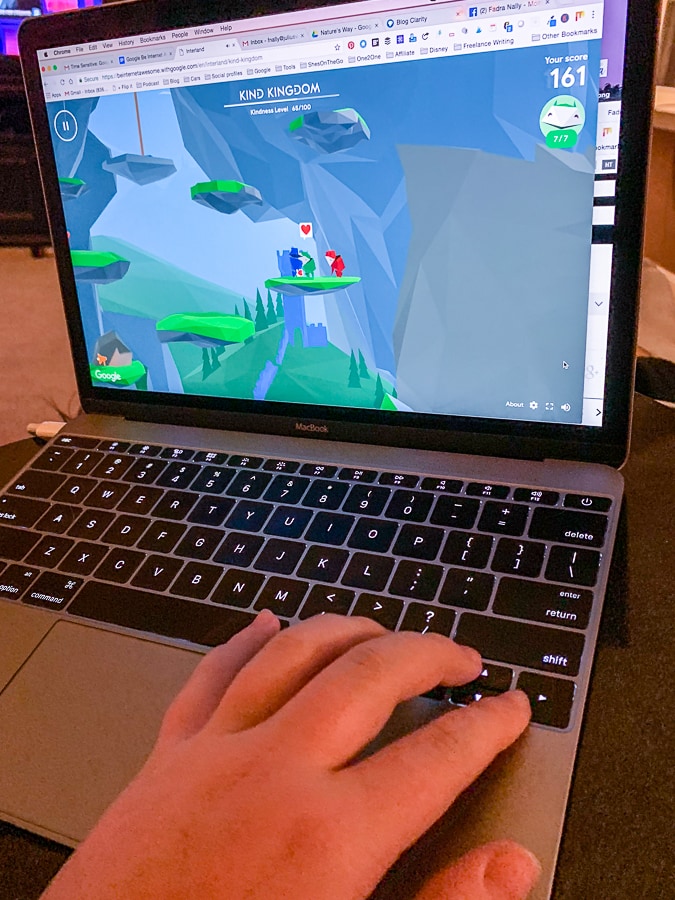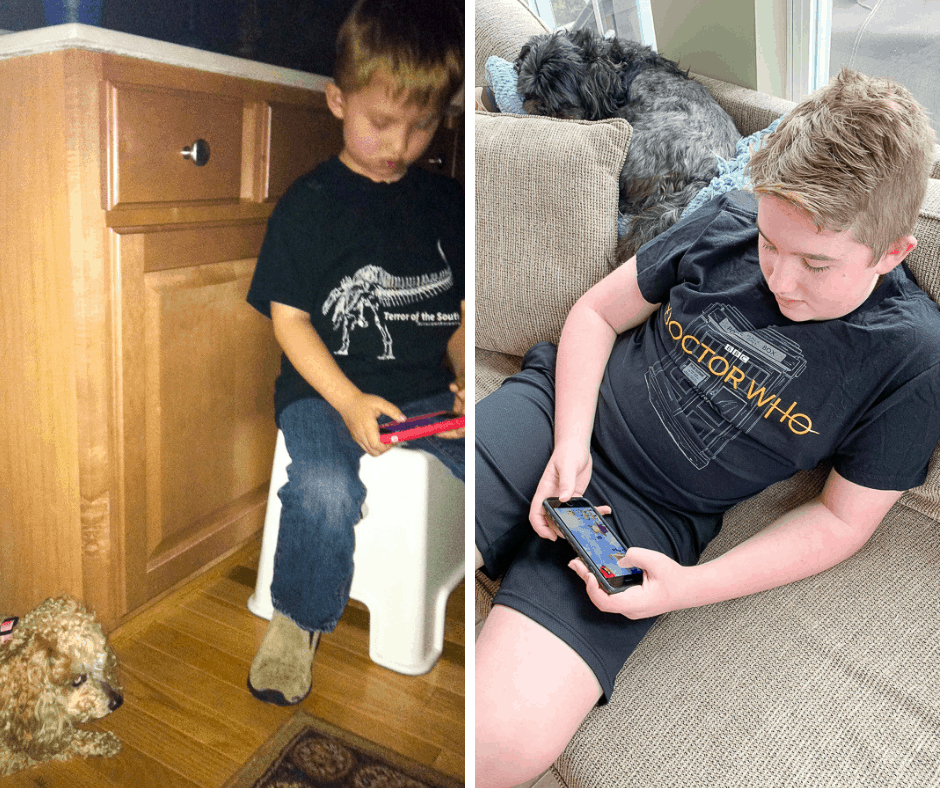This post is sponsored by Google’s Be Internet Awesome program.
At 11 (almost 12!) years old, my son has never known life without the internet. In fact, he’s never known dial-up or flip phones or a world with Google. I’d say that makes him a pretty lucky kid. But I’d also say that presents a whole new set of parenting challenges that I know my parents never had to deal with.
Here’s to making it up as you go along. I’m growing up in the internet age along with my son and because I work online, I’m embedded in all the good and bad of the online world. It helps to keep me plugged in, aware, and proactive when it comes to having conversations about the dangers of the internet. And it allows me to have these conversations in conjunction with all of the amazing things about the internet too.
If you feel like you’re struggling to keep up, here are a few ways to enlighten your kids (and, um, yourself, if we’re being honest as parents) and show them how to spread kindness online.
1. It starts with awareness.
When our kids are young, they expect the outside world to operate exactly as it does inside their home. It’s (hopefully) a warm, loving, safe, nurturing environment that allows them to blossom into little people. And then they go to school and see that not everyone is exactly like them. They have to learn what it’s like to share, wait in line, take turns, and, most importantly, get along with people they just don’t like.
From day one, I had to hear about experiences with kids who were mean to my kid. While your instinct might be seek out those who might upset your precious little angel to exact revenge, that’s not the way the world works. You teach your kids to understand differences and talk about it. And sometimes, when none of that works, you teach your kids that some people are simply jerks and it’s probably best to give them a wide berth.
From these early and seemingly innocent interactions, you find bullying starting to take root. And honestly, it’s easier when you know exactly what’s being said, to whom, and maybe even why. It’s within your power to do something or teach your kids to do something.
As they start getting older, more and more of these experiences occur in the online world where it’s harder for parents to be as plugged in. Make sure your kids are aware of what cyberbullying means (both of the giving and receiving end) and monitor those computers and devices! You can’t help when you aren’t even aware.
2. Share your experiences.
My son has been the victim of a few instances of cyberbullying. At his age, it usually involves video game chats. Some are audio chats (like with an Xbox One) and some are online chats, like with games on his phone. I limit who he can interact with online. I monitor his chats now and then. And I still missed a lot.
It took quite a few conversations for my son to confide in me when something was going awry. And it took even more effort to realize that he wasn’t responding kindly.
Although I have many social accounts, I generally feel like I know my community. But on my YouTube channel, I get a lot of comments from strangers. Most are thoughtful, intelligent, or just fun and flattering comments. Occasionally, I’ll get some unkind comments and, if they’re clean, I’ll share them with my son. It helps him to see how big the internet is and how easy it is for people to hide behind a keyboard when it comes to negative behavior online.
3. Lead by example.
When I share those unkind comments from YouTube with my son, I also share how I respond to them. I rarely delete my comments because I know that someone on the other end typically wants attention or wants to be heard. So I help them out. I respond with a healthy dose of humor and I’m always amazed at how quickly their negative comment turns positive. I also remind them that I am an actual human sitting on the other end of the computer. I read each one and respond so people remember that there are real people behind every corner of the internet.
4. Explore Interland.
If you don’t happen to have a YouTube channel and you have personally never experienced cyberbullying or negativity on the internet, CONGRATULATIONS!! You are one of the lucky few! Thankfully, Google has created a online space to help teach kids how to Be Internet Awesome, including how to be kind to others.
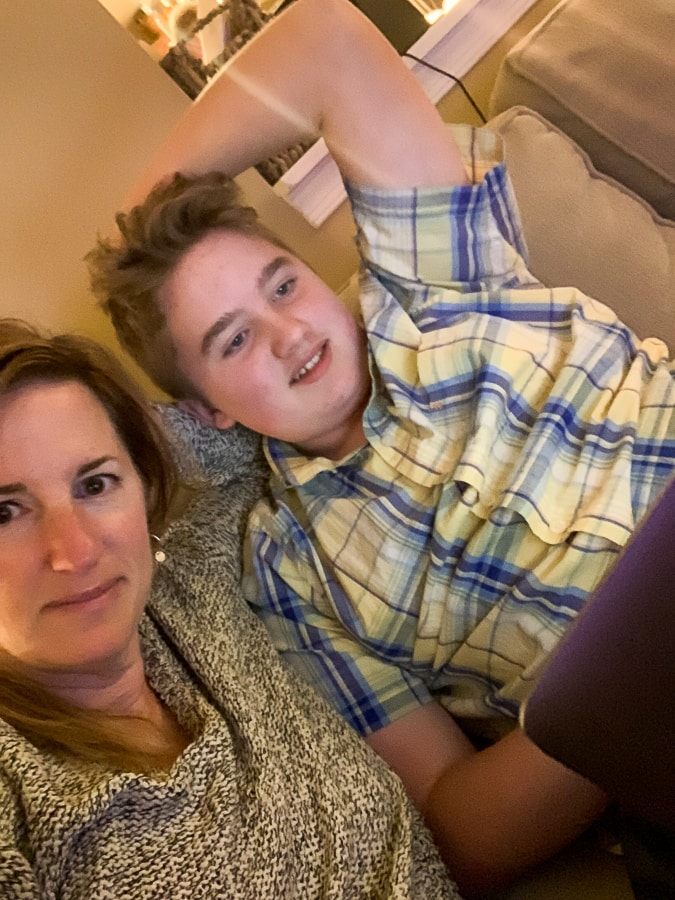
The key to having conversations about the internet is that you need to sit and HAVE CONVERSATIONS. We explored Interland together!
Be Internet Awesome is Google’s free multifaceted program designed to teach kids the fundamentals of digital citizenship and safety so they can explore the online world with confidence. We spent time exploring Interland, an online game about digital safety and citizenship, and my son actually enjoyed it!
The five areas of Internet awesomeness that kids can explore in Interland include:
- SMART: Where we learn to share with care
- ALERT: Where we learn not to fall for fake
- STRONG: Where we learn how to secure our digital stuff
- KIND: Where we learn that itʼs cool to be kind
- BRAVE: Where we learn that, when in doubt, we talk it out
We focused on the KIND module where large yellow figures were making other smaller figures sad. My son learned that he can block the bullies and share hearts (kindness) with those affected. We actually even tried to share hearts with the bullies themselves but it wasn’t until the end of the game that we were able to do that. Which was a perfect way to end the game… follow the golden rule.
5. Follow the Golden Rule.
“Do unto others as you would have them do until you.”
It’s that simple. It’s a reminder that kids (and adults) need to hear over and over but it’s how they develop empathy and learn to become kind, compassionate people capable of understanding others even when they don’t agree with them.
After a gaming chat had gotten out of hand, I spoke to the mother of one of the kids involved. I relayed the words that her son had written to my son. She told me that those were the same words other kids has said to her son. What a powerful learning moment. When others treat us poorly, our instinct, especially as kids, is to take it out on others. But by extension, he was able to see that extending kindness could have the same ripple effect.
6. Give them some space (but not too much).
As our kids get older, they need to be connected. It’s part of school. It’s part of their social scene. And, on the positive side, it’s how they learn so much about the world that we never had at our fingertips. Let them embrace the digital space. Encourage them to research the answers to their own questions. Tell them it’s okay to connect online with people that they know.
But until they’re old enough, make sure you continue to provide learning experiences, lead by example, and stay close.
Learn more about how to Be Internet Awesome at g.co/BeInternetAwesome and tell your kids’ teachers about the online curriculum so they can introduce these activities in the classroom. And then play Interland with your kids and put your kindness skills to the test at g.co/KindKingdom

